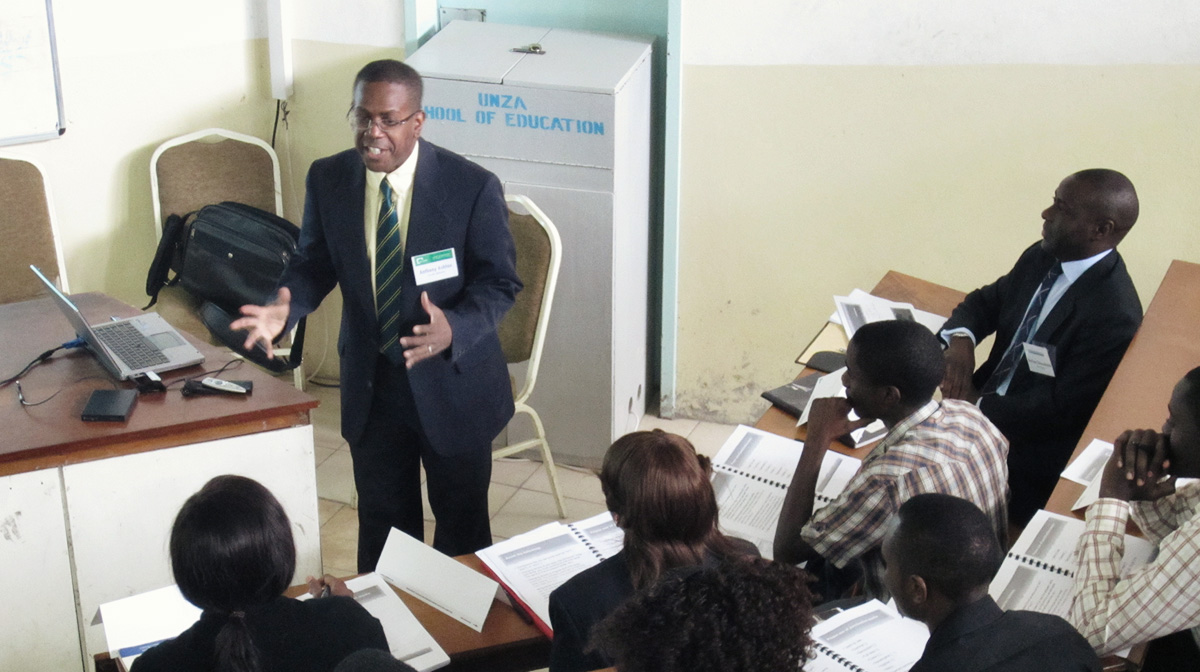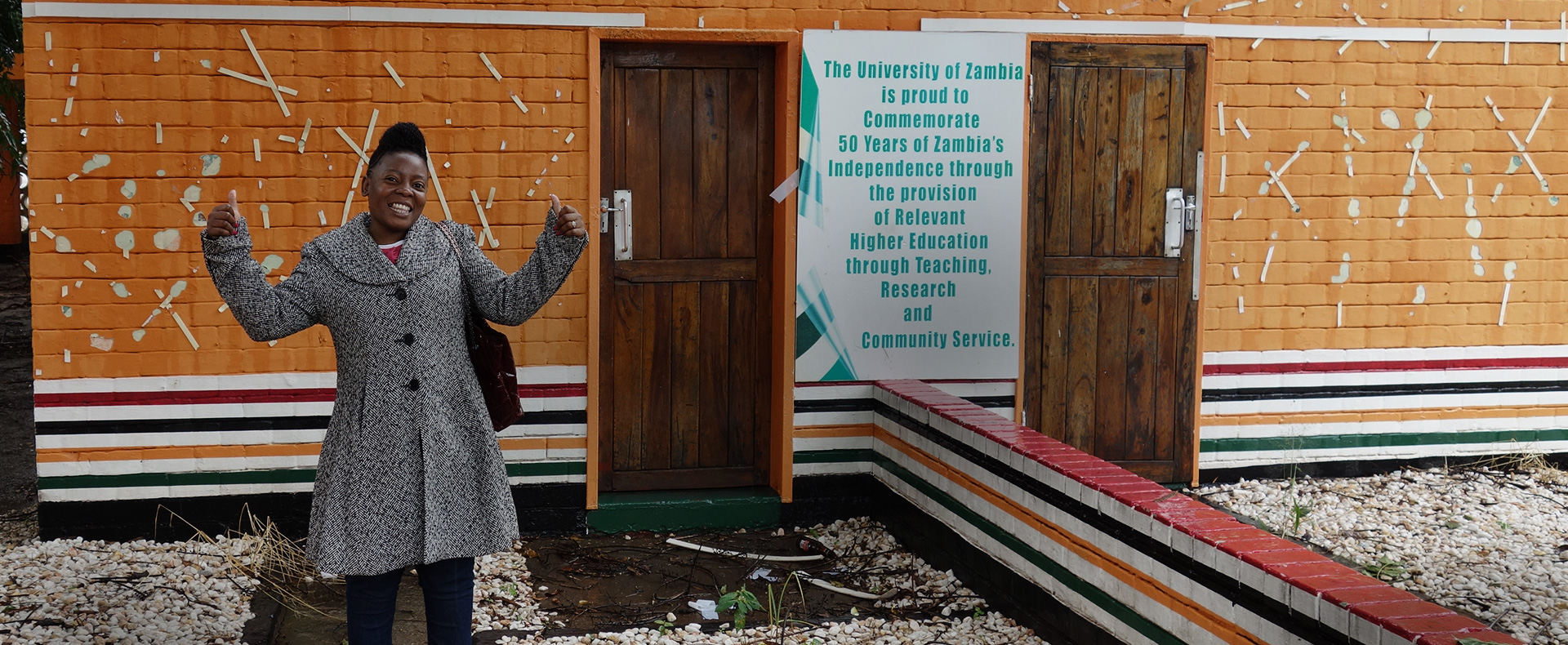Inspiration found in Zambia

On Sunday, the evening of June 16th, the teaching team of formerly disembodied voices on conference calls met for the first time in person. On Monday morning, we loaded into the van and headed to the University of Zambia School of Law to teach legal writing to fourth-year students. Although the lecture hall featured multiple non-working fluorescent lights, and windows with missing panes, the students’ enthusiasm and desire to learn transcended their surroundings. The school day began with inspirational speeches from Zambian legal professionals. Next, we broke the students into four subgroups, which was new to the student body, as all their law classes were taught in a large lecture hall setting.
Although students were placed in subgroups essentially at random, teaching teams were designed so as to maximize the diversity of teaching provided to students. I, an American male, was paired with Nikki, a female attorney from Sydney, Australia. The students were receptive, but spoke barely above a whisper when asked questions as part of the lessons. Nikki and I later learned that, throughout their law school careers, the students had not taken classes in which the instructors called upon them to respond and actively participate. The students, however, soon acclimated to this style of teaching/learning.
Whereas Monday focused on basic writing style, including the “KISS” (Keep It Short and Simple) method, Tuesday through Thursday featured lessons on legal research, citation, the perils of plagiarism, and the “IRAC” (Issue spotting, stating the Rule of law, Application of the rule to the facts presented, and stating the Conclusion reached) formula of legal writing. This formula, which we visiting instructors used daily, was foreign to these students in their final year of law school. By week’s end, however, all students understood its value and worked hard to incorporate it into the writing assignments we gave them. The week also featured a post-school day session on the Socratic method of teaching, in which the university’s regular instructors were the pupils.
Friday was our final day with the students. Lawyers from Stanbic Bank and Chibesakunda & Co., Zambia’s largest law firm, spoke to the students about legal careers after law school. As we said our goodbyes, each instructor thanked the students for granting us the pleasure and honour of working with them. In turn, the students expressed their gratitude to us. The closing session was followed by group and individual photos with smiling students.
Beginning Friday afternoon, our teaching team began scattering to the four corners of the earth. As I returned home, I remained inspired by the students I met. These students who face uphill battles have persevered thus far and continue to keep their eyes on the prize of being practicing lawyers. I have a deep and abiding appreciation for their struggles and their will to achieve. Finally, I am thankful to my co-instructors, Samantha Bent, Michael Down, Xander van Leeuwen , Nikki Scoble, Jennifer Squillario, James Willcock, and Ian Wood, and to Sara Andrews of New Perimeter for orchestrating and coordinating this venture.
Teaching at the University of
Zambia School of Law
